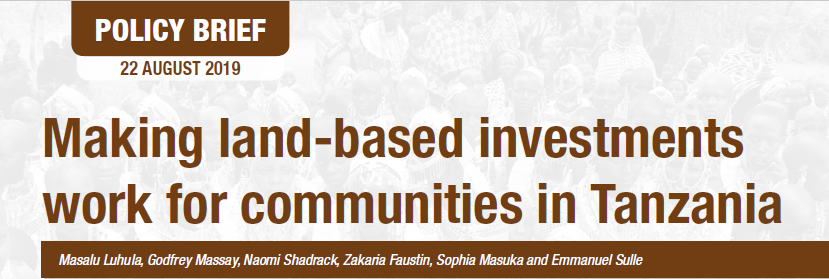On Whose Behalf? Legislative Representation and the Environment in Africa
Publication Type:
ReportSource:
World Resources Institute, Washington DC (2008)ISBN:
978-1-56973-693-7Keywords:
Legislature Representation EnvironmentAbstract:
<p>In much of Africa, public policies and government actions
do not always, and in some cases rarely, refl ect the high
priority concerns of rural people, who comprise about
65 percent of the continent’s population. The common
positions of the poor, rural majority and the specifi c
needs of marginalized minorities are not systematically
recognized or structurally incorporated into government
decisions and public policy. Government policies and
practices often favor the interests of small, powerful
groups of political and economic elite. </p>
<p>This disconnect between national policies and majority
interests highlights the need for government decisionmaking
processes that are responsive and accountable to
citizen views, and that make participation, representation,
and other forms of inclusion common practice and
effective. In much of Africa, communication and other
links between the state and society are weak. Citizen and
non-governmental organization (NGO) participation
often has limited effect on public policies, and elected
government offi cials frequently under- or mis-represent
local needs. Despite sweeping political reforms in many
African nations over the last two decades, meaningful
authority over issues that matter most to poor, rural
populations still lies with national governments,
especially the president and cabinet. Across Africa,
reforms to separate and decentralize powers have been
weak and largely ineffective. As a result, the quality of
representation at the national level bears directly on the
social and economic wellbeing of rural constituents.</p>
<p>The legislature, as “the people’s house,” is the branch of
government in which citizens’ interests are, in principle,
brought into national decision-making processes and
transformed into law. It is the point at which ordinary
citizens most closely engage their national leaders. In
well-structured and functioning democratic systems,
legislators are among the most important channels for
bringing citizen concerns into national decision making.
In this regard, the legislature is arguably the most
promising of central government branches to advance the
goal of effective representation and to ensure government
is responsive to its citizenry.</p>
<p>Under new or reformed constitutions, many countries in
Africa now have popularly elected national legislators who
sit in newly empowered legislatures—national supreme
lawmaking bodies. Constitutional arrangements and
political circumstances vary widely across the continent,
but representation is arguably the most basic function
of legislators. Through its lawmaking and oversight
authorities, the legislature is the central government’s
main venue for articulating popular will in national
decisions, and a principal bridge between citizens and
national government. While a few African countries have
a presidential political system, most have a parliamentary
political system, but with a strong president and a weak or
absent prime minister. In most nations the legislature is a
single chamber—a parliament that consists of a National
Assembly made up of elected representatives. Moreover,
most countries are unitarian states; only a few nations are
federal states with legislatures at the national and state
level. </p>
<p>incentives and disincentives to legislative representation
in Africa and provides a number of policy and program
recommendations. Four critical aspects of representation
are discussed in detail: accountability of legislators to their
constituents, autonomy from political bosses and politics,
authority and capacity to perform representation roles, and
personal attributes of legislators. Legislative representation
is examined from an environmental perspective. In
WRI: ON WHOSE BEHALF?
2
rural Africa, the environment—land, natural resources,
ecosystem services—is an important source of household
livelihoods and a vital constituent interest. As such, the
environment provides a useful optic for observation
and understanding governance, and a potentially
powerful lever for engaging citizens in government
matters, promoting systemic governance reforms, and
strengthening democracy.</p>
| Attachment | Size |
|---|---|
| 1.06 MB |

